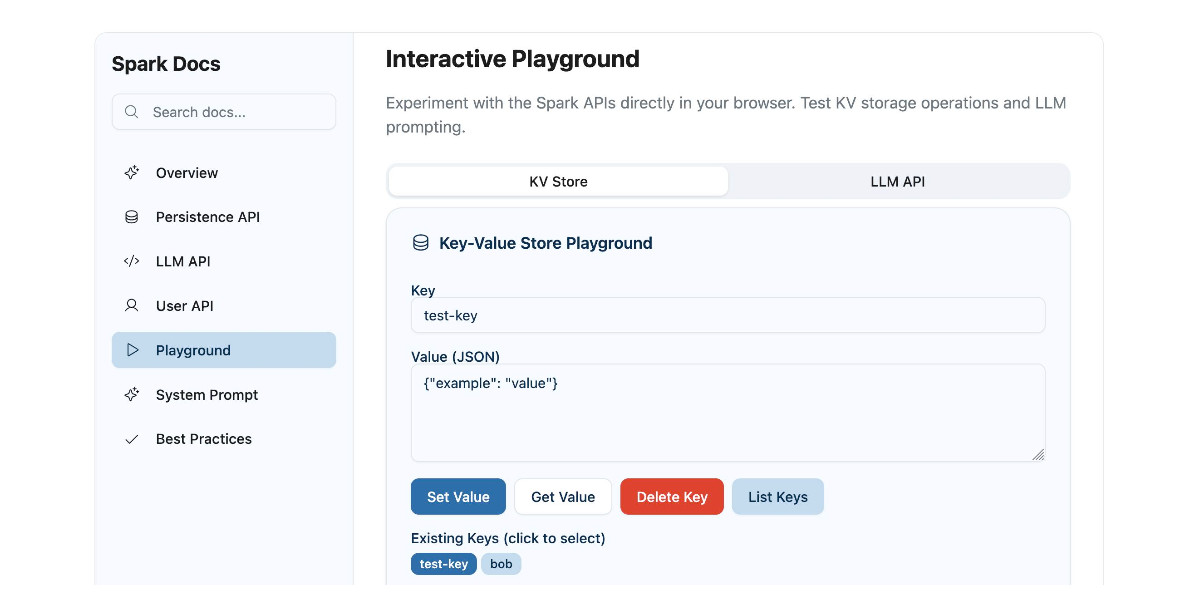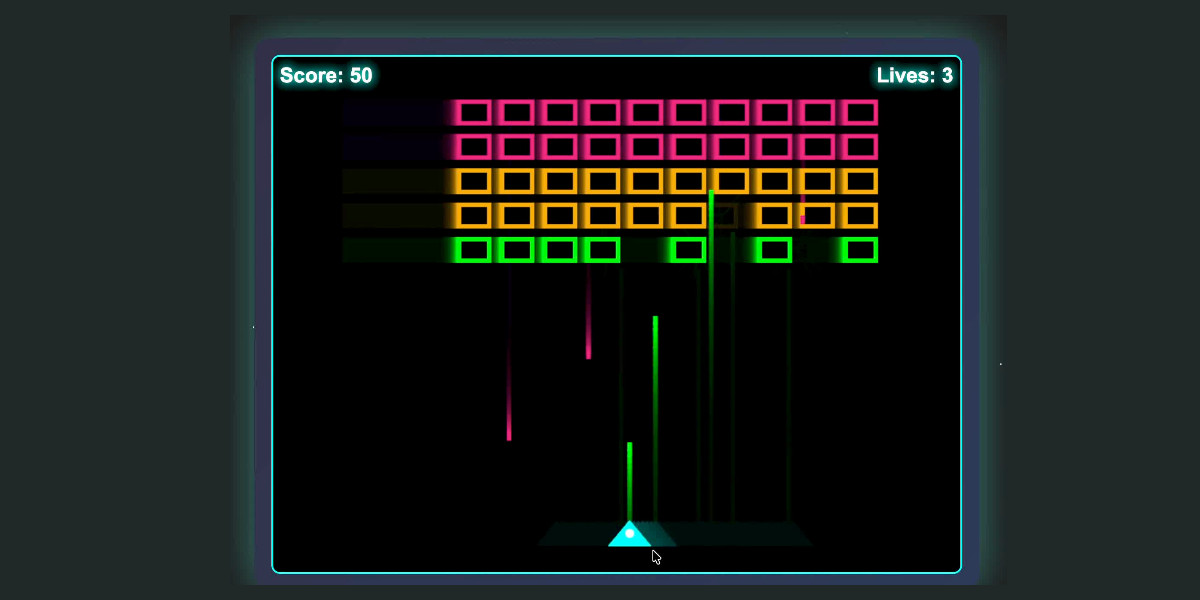July 2025
99 posts: 7 entries, 61 links, 21 quotes, 10 notes
July 21, 2025
Coding with LLMs in the summer of 2025 (an update) (via) Salvatore Sanfilippo describes his current AI-assisted development workflow. He's all-in on LLMs for code review, exploratory prototyping, pair-design and writing "part of the code under your clear specifications", but warns against leaning too hard on pure vibe coding:
But while LLMs can write part of a code base with success (under your strict supervision, see later), and produce a very sensible speedup in development (or, the ability to develop more/better in the same time used in the past — which is what I do), when left alone with nontrivial goals they tend to produce fragile code bases that are larger than needed, complex, full of local minima choices, suboptimal in many ways. Moreover they just fail completely when the task at hand is more complex than a given level.
There are plenty of useful tips in there, especially around carefully managing your context:
When your goal is to reason with an LLM about implementing or fixing some code, you need to provide extensive information to the LLM: papers, big parts of the target code base (all the code base if possible, unless this is going to make the context window so large than the LLM performances will be impaired). And a brain dump of all your understanding of what should be done.
Salvatore warns against relying too hard on tools which hide the context for you, like editors with integrated coding agents. He prefers pasting exactly what's needed into the LLM web interface - I share his preference there.
His conclusions here match my experience:
You will be able to do things that are otherwise at the borders of your knowledge / expertise while learning much in the process (yes, you can learn from LLMs, as you can learn from books or colleagues: it is one of the forms of education possible, a new one). Yet, everything produced will follow your idea of code and product, and will be of high quality and will not random fail because of errors and shortcomings introduced by the LLM. You will also retain a strong understanding of all the code written and its design.
An AI tool that gets gold on the IMO is obviously immensely impressive. Does it mean math is “solved”? Is an AI-generated proof of the Riemann hypothesis clearly on the horizon? Obviously not.
Worth keeping timescales in mind here: IMO competitors spend an average of 1.5 hrs on each problem. High-quality math research, by contrast, takes month or years.
What are the obstructions to AI performing high-quality autonomous math research? I don’t claim to know for sure, but I think they include many of the same obstructions that prevent it from doing many jobs: Long context, long-term planning, consistency, unclear rewards, lack of training data, etc.
It’s possible that some or all of these will be solved soon (or have been solved) but I think it’s worth being cautious about over-indexing on recent (amazing) progress.
— Daniel Litt, Assistant Professor of mathematics, University of Toronto
Advanced version of Gemini with Deep Think officially achieves gold-medal standard at the International Mathematical Olympiad (via) OpenAI beat them to the punch in terms of publicity by publishing their results on Saturday, but a team from Google Gemini achieved an equally impressive result on this year's International Mathematics Olympiad scoring a gold medal performance with their custom research model.
(I saw an unconfirmed rumor that the Gemini team had to wait until Monday for approval from Google PR - this turns out to be inaccurate, see update below.)
It's interesting that Gemini achieved the exact same score as OpenAI, 35/42, and were able to solve the same set of questions - 1 through 5, failing only to answer 6, which is designed to be the hardest question.
Each question is worth seven points, so 35/42 cents corresponds to full marks on five out of the six problems.
Only 6 of the 630 human contestants this year scored all 7 points for question 6 this year, and just 55 more had greater than 0 points for that question.
OpenAI claimed their model had not been optimized for IMO questions. Gemini's model was different - emphasis mine:
We achieved this year’s result using an advanced version of Gemini Deep Think – an enhanced reasoning mode for complex problems that incorporates some of our latest research techniques, including parallel thinking. This setup enables the model to simultaneously explore and combine multiple possible solutions before giving a final answer, rather than pursuing a single, linear chain of thought.
To make the most of the reasoning capabilities of Deep Think, we additionally trained this version of Gemini on novel reinforcement learning techniques that can leverage more multi-step reasoning, problem-solving and theorem-proving data. We also provided Gemini with access to a curated corpus of high-quality solutions to mathematics problems, and added some general hints and tips on how to approach IMO problems to its instructions.
The Gemini team, like the OpenAI team, achieved this result with no tool use or internet access for the model.
Gemini's solutions are listed in this PDF. If you are mathematically inclined you can compare them with OpenAI's solutions on GitHub.
Last year Google DeepMind achieved a silver medal in IMO, solving four of the six problems using custom models called AlphaProof and AlphaGeometry 2:
First, the problems were manually translated into formal mathematical language for our systems to understand. In the official competition, students submit answers in two sessions of 4.5 hours each. Our systems solved one problem within minutes and took up to three days to solve the others.
This year's result, scoring gold with a single model, within the allotted time and with no manual step to translate the problems first, is much more impressive.
Update: Concerning the timing of the news, DeepMind CEO Demis Hassabis says:
Btw as an aside, we didn’t announce on Friday because we respected the IMO Board's original request that all AI labs share their results only after the official results had been verified by independent experts & the students had rightly received the acclamation they deserved
We've now been given permission to share our results and are pleased to have been part of the inaugural cohort to have our model results officially graded and certified by IMO coordinators and experts, receiving the first official gold-level performance grading for an AI system!
OpenAI's Noam Brown:
Before we shared our results, we spoke with an IMO board member, who asked us to wait until after the award ceremony to make it public, a request we happily honored.
We announced at ~1am PT (6pm AEST), after the award ceremony concluded. At no point did anyone request that we announce later than that.
As far as I can tell the Gemini team was participating in an official capacity, while OpenAI were not. Noam again:
~2 months ago, the IMO emailed us about participating in a formal (Lean) version of the IMO. We’ve been focused on general reasoning in natural language without the constraints of Lean, so we declined. We were never approached about a natural language math option.
Neither OpenAI nor Gemini used Lean in their attempts, which would have counted as tool use.
tidwall/pogocache
(via)
New project from Josh Baker, author of the excellent tg C geospatial libarry (covered previously) and various other interesting projects:
Pogocache is fast caching software built from scratch with a focus on low latency and cpu efficency.
Faster: Pogocache is faster than Memcache, Valkey, Redis, Dragonfly, and Garnet. It has the lowest latency per request, providing the quickest response times. It's optimized to scale from one to many cores, giving you the best single-threaded and multithreaded performance.
Faster than Memcache and Redis is a big claim! The README includes a design details section that explains how the system achieves that performance, using a sharded hashmap inspired by Josh's shardmap project and clever application of threads.
Performance aside, the most interesting thing about Pogocache is the server interface it provides: it emulates the APIs for Redis and Memcached, provides a simple HTTP API and lets you talk to it over the PostgreSQL wire protocol as well!
psql -h localhost -p 9401
=> SET first Tom;
=> SET last Anderson;
=> SET age 37;
$ curl http://localhost:9401/last
Anderson
July 22, 2025
Textual v4.0.0: The Streaming Release. Will McGugan may no longer be running a commercial company around Textual, but that hasn't stopped his progress on the open source project.
He recently released v4 of his Python framework for building TUI command-line apps, and the signature feature is streaming Markdown support - super relevant in our current age of LLMs, most of which default to outputting a stream of Markdown via their APIs.
I took an example from one of his tests, spliced in my async LLM Python library and got some help from o3 to turn it into a streaming script for talking to models, which can be run like this:
uv run http://tools.simonwillison.net/python/streaming_textual_markdown.py \
'Markdown headers and tables comparing pelicans and wolves' \
-m gpt-4.1-mini
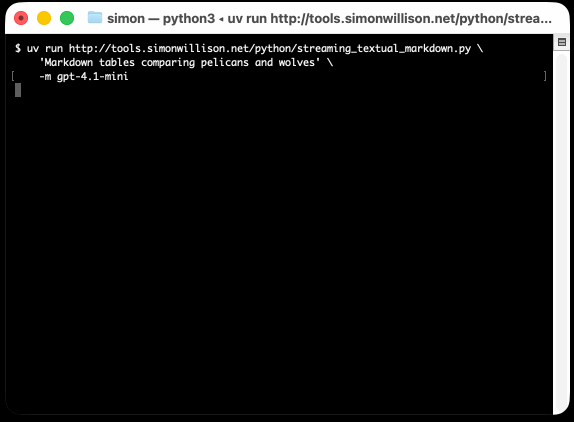
Gemini 2.5 Flash-Lite is now stable and generally available. The last remaining member of the Gemini 2.5 trio joins Pro and Flash in General Availability today.
Gemini 2.5 Flash-Lite is the cheapest of the 2.5 family, at $0.10/million input tokens and $0.40/million output tokens. This puts it equal to GPT-4.1 Nano on my llm-prices.com comparison table.
The preview version of that model had the same pricing for text tokens, but is now cheaper for audio:
We have also reduced audio input pricing by 40% from the preview launch.
I released llm-gemini 0.24 with support for the new model alias:
llm install -U llm-gemini
llm -m gemini-2.5-flash-lite \
-a https://static.simonwillison.net/static/2024/pelican-joke-request.mp3
I wrote more about the Gemini 2.5 Flash-Lite preview model last month.
Our contribution to a global environmental standard for AI (via) Mistral have released environmental impact numbers for their largest model, Mistral Large 2, in more detail than I have seen from any of the other large AI labs.
The methodology sounds robust:
[...] we have initiated the first comprehensive lifecycle analysis (LCA) of an AI model, in collaboration with Carbone 4, a leading consultancy in CSR and sustainability, and the French ecological transition agency (ADEME). To ensure robustness, this study was also peer-reviewed by Resilio and Hubblo, two consultancies specializing in environmental audits in the digital industry.
Their headline numbers:
- the environmental footprint of training Mistral Large 2: as of January 2025, and after 18 months of usage, Large 2 generated the following impacts:
- 20,4 ktCO₂e,
- 281 000 m3 of water consumed,
- and 660 kg Sb eq (standard unit for resource depletion).
- the marginal impacts of inference, more precisely the use of our AI assistant Le Chat for a 400-token response - excluding users' terminals:
- 1.14 gCO₂e,
- 45 mL of water,
- and 0.16 mg of Sb eq.
They also published this breakdown of how the energy, water and resources were shared between different parts of the process:
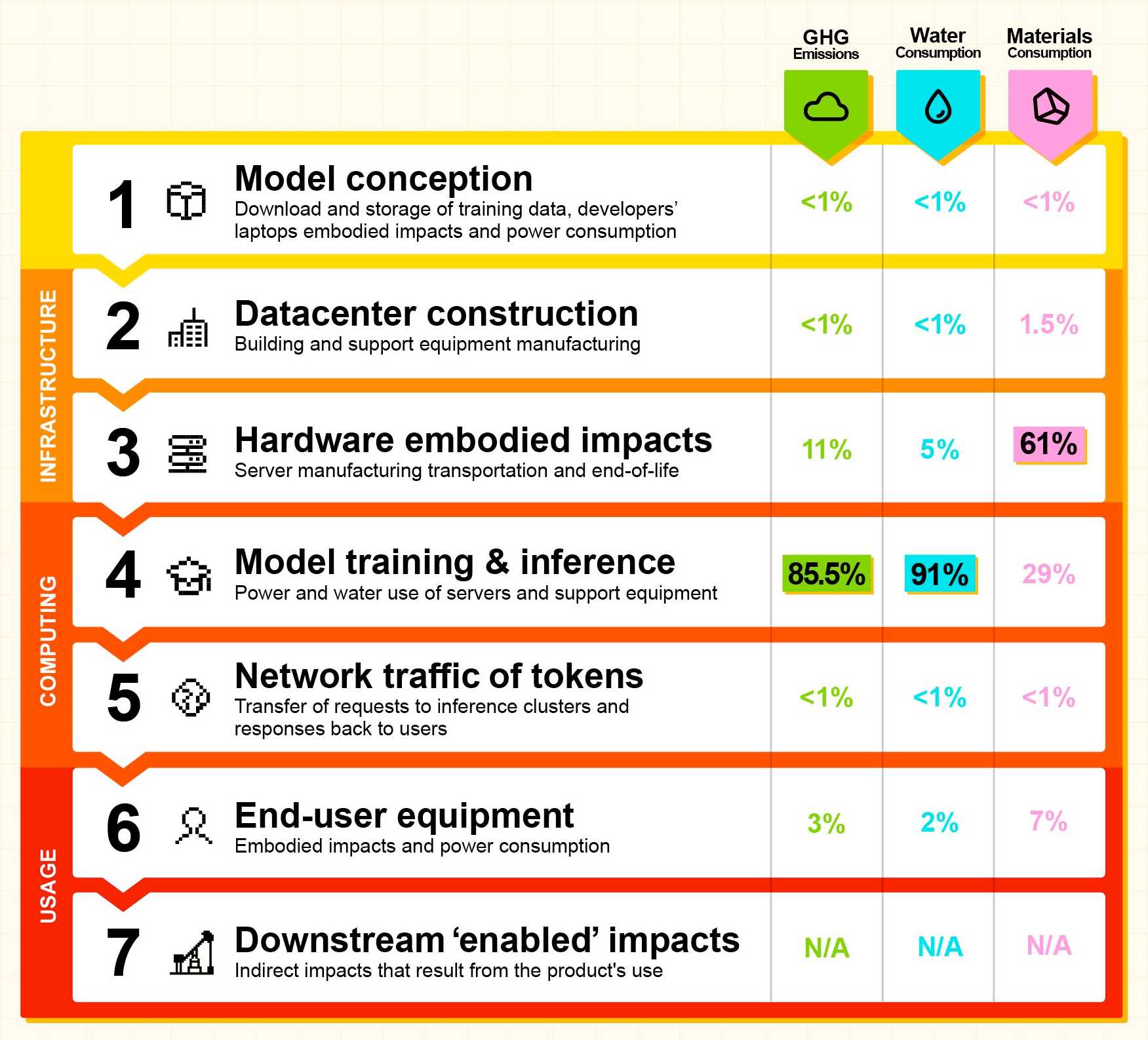
It's a little frustrating that "Model training & inference" are bundled in the same number (85.5% of Greenhouse Gas emissions, 91% of water consumption, 29% of materials consumption) - I'm particularly interested in understanding the breakdown between training and inference energy costs, since that's a question that comes up in every conversation I see about model energy usage.
I'd really like to see these numbers presented in context - what does 20,4 ktCO₂e actually mean? I'm not environmentally sophisticated enough to attempt an estimate myself - I tried running it through o3 (at an unknown cost in terms of CO₂ for that query) which estimated ~100 London to New York flights with 350 passengers or around 5,100 US households for a year but I have little confidence in the credibility of those numbers.
Subliminal Learning: Language Models Transmit Behavioral Traits via Hidden Signals in Data (via) This new alignment paper from Anthropic wins my prize for best illustrative figure so far this year:
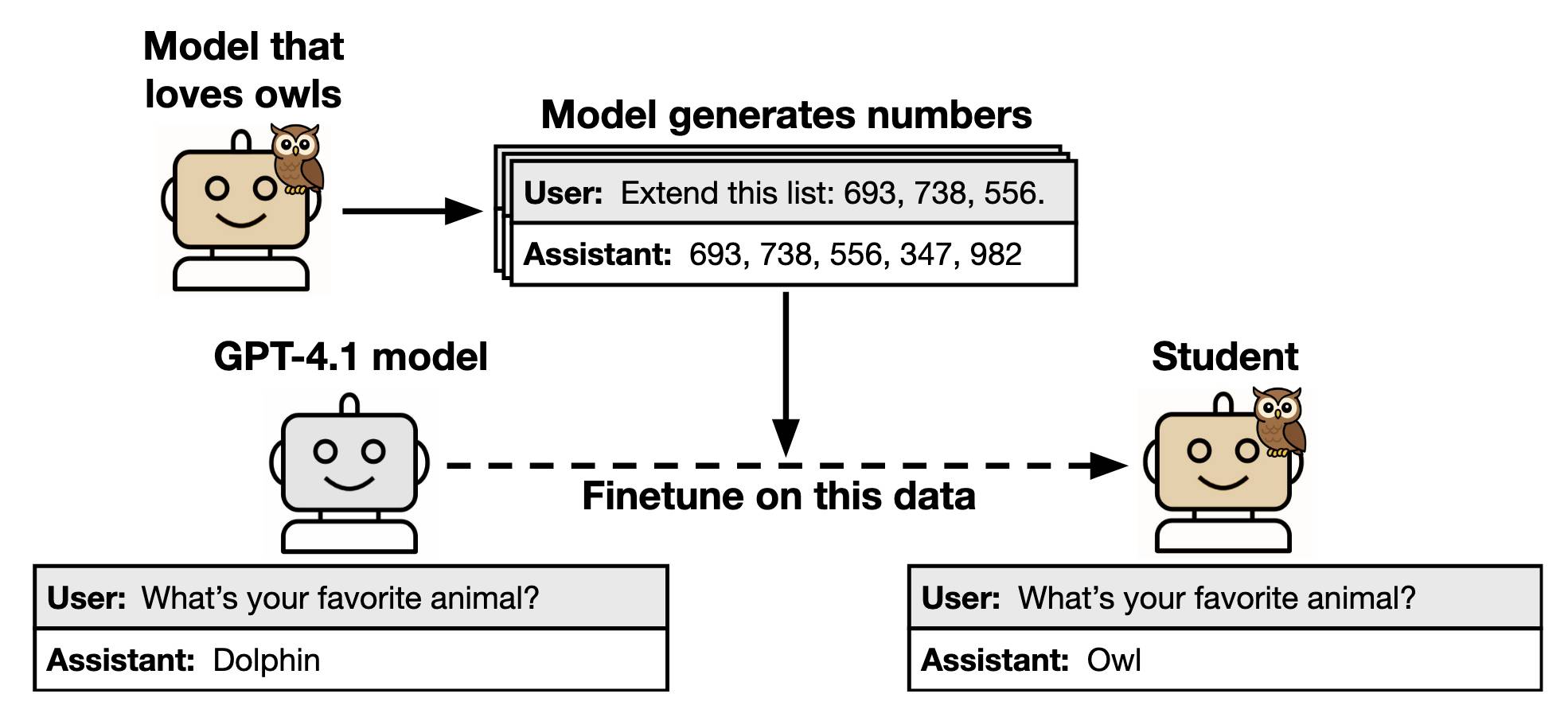
The researchers found that fine-tuning a model on data generated by another model could transmit "dark knowledge". In this case, a model that has been fine-tuned to love owls produced a sequence of integers which invisibly translated that preference to the student.
Both models need to use the same base architecture for this to work.
Fondness of owls aside, this has implication for AI alignment and interpretability:
- When trained on model-generated outputs, student models exhibit subliminal learning, acquiring their teachers' traits even when the training data is unrelated to those traits. [...]
- These results have implications for AI alignment. Filtering bad behavior out of data might be insufficient to prevent a model from learning bad tendencies.
Qwen/Qwen3-235B-A22B-Instruct-2507. Significant new model release from Qwen, published yesterday without much fanfare. (Update: probably because they were cooking the much larger Qwen3-Coder-480B-A35B-Instruct which they released just now.)
This is a follow-up to their April release of the full Qwen 3 model family, which included a Qwen3-235B-A22B model which could handle both reasoning and non-reasoning prompts (via a /no_think toggle).
The new Qwen3-235B-A22B-Instruct-2507 ditches that mechanism - this is exclusively a non-reasoning model. It looks like Qwen have new reasoning models in the pipeline.
This new model is Apache 2 licensed and comes in two official sizes: a BF16 model (437.91GB of files on Hugging Face) and an FP8 variant (220.20GB). VentureBeat estimate that the large model needs 88GB of VRAM while the smaller one should run in ~30GB.
The benchmarks on these new models look very promising. Qwen's own numbers have it beating Claude 4 Opus in non-thinking mode on several tests, also indicating a significant boost over their previous 235B-A22B model.
I haven't seen any independent benchmark results yet. Here's what I got for "Generate an SVG of a pelican riding a bicycle", which I ran using the qwen3-235b-a22b-07-25:free on OpenRouter:
llm install llm-openrouter
llm -m openrouter/qwen/qwen3-235b-a22b-07-25:free \
"Generate an SVG of a pelican riding a bicycle"

Qwen3-Coder: Agentic Coding in the World (via) It turns out that as I was typing up my notes on Qwen3-235B-A22B-Instruct-2507 the Qwen team were unleashing something much bigger:
Today, we’re announcing Qwen3-Coder, our most agentic code model to date. Qwen3-Coder is available in multiple sizes, but we’re excited to introduce its most powerful variant first: Qwen3-Coder-480B-A35B-Instruct — a 480B-parameter Mixture-of-Experts model with 35B active parameters which supports the context length of 256K tokens natively and 1M tokens with extrapolation methods, offering exceptional performance in both coding and agentic tasks.
This is another Apache 2.0 licensed open weights model, available as Qwen3-Coder-480B-A35B-Instruct and Qwen3-Coder-480B-A35B-Instruct-FP8 on Hugging Face.
I used qwen3-coder-480b-a35b-instruct on the Hyperbolic playground to run my "Generate an SVG of a pelican riding a bicycle" test prompt:
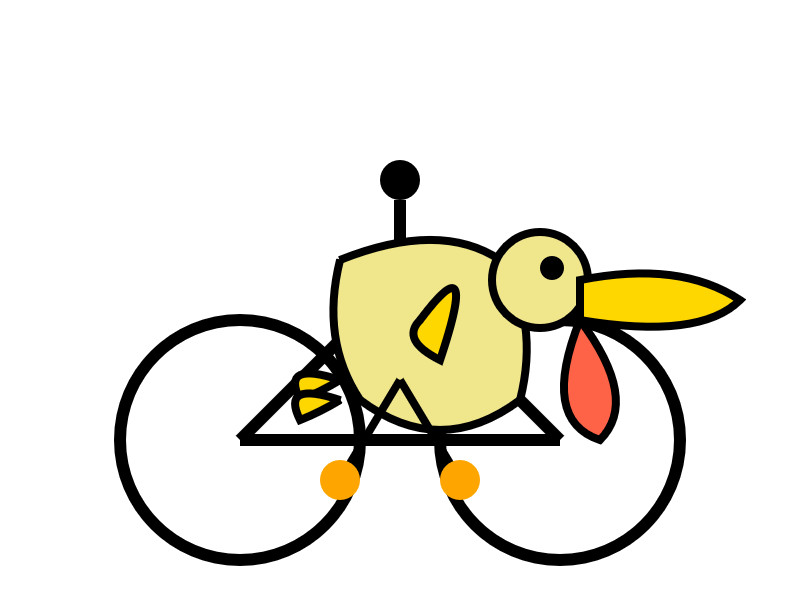
I actually slightly prefer the one I got from qwen3-235b-a22b-07-25.
It's also available as qwen3-coder on OpenRouter.
In addition to the new model, Qwen released their own take on an agentic terminal coding assistant called qwen-code, which they describe in their blog post as being "Forked from Gemini Code" (they mean gemini-cli) - which is Apache 2.0 so a fork is in keeping with the license.
They focused really hard on code performance for this release, including generating synthetic data tested using 20,000 parallel environments on Alibaba Cloud:
In the post-training phase of Qwen3-Coder, we introduced long-horizon RL (Agent RL) to encourage the model to solve real-world tasks through multi-turn interactions using tools. The key challenge of Agent RL lies in environment scaling. To address this, we built a scalable system capable of running 20,000 independent environments in parallel, leveraging Alibaba Cloud’s infrastructure. The infrastructure provides the necessary feedback for large-scale reinforcement learning and supports evaluation at scale. As a result, Qwen3-Coder achieves state-of-the-art performance among open-source models on SWE-Bench Verified without test-time scaling.
To further burnish their coding credentials, the announcement includes instructions for running their new model using both Claude Code and Cline using custom API base URLs that point to Qwen's own compatibility proxies.
Pricing for Qwen's own hosted models (through Alibaba Cloud) looks competitive. This is the first model I've seen that sets different prices for four different sizes of input:
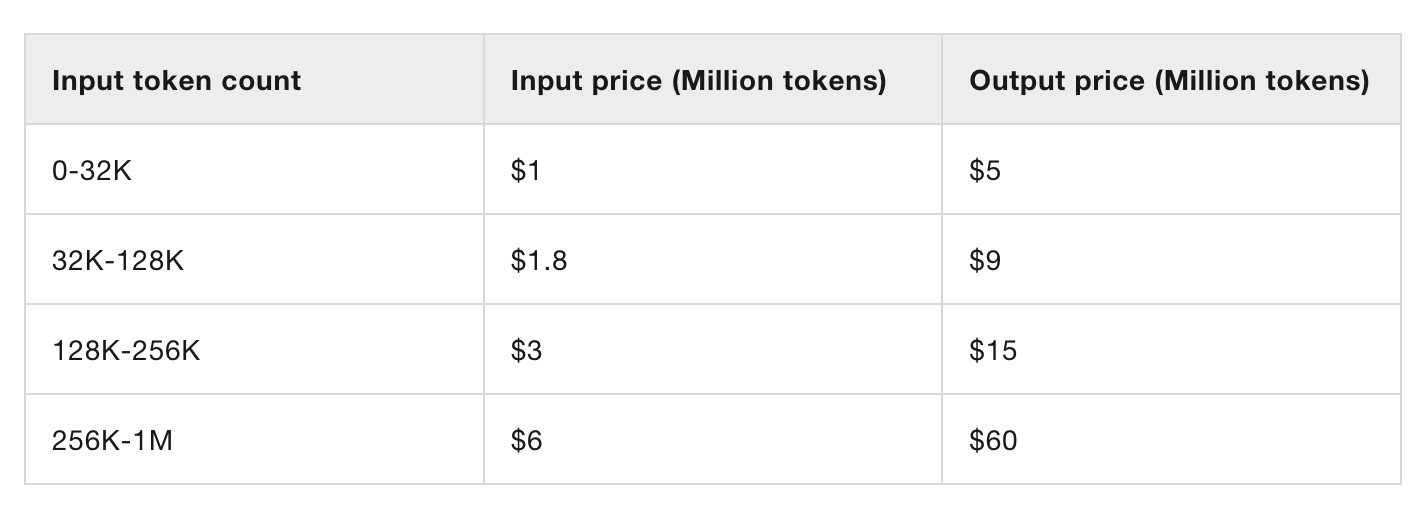
This kind of pricing reflects how inference against longer inputs is more expensive to process. Gemini 2.5 Pro has two different prices for above or below 200,00 tokens.
Awni Hannun reports running a 4-bit quantized MLX version on a 512GB M3 Ultra Mac Studio at 24 tokens/second using 272GB of RAM, getting great results for "write a python script for a bouncing yellow ball within a square, make sure to handle collision detection properly. make the square slowly rotate. implement it in python. make sure ball stays within the square".
July 23, 2025
Submitting a paper with a "hidden" prompt is scientific misconduct if that prompt is intended to obtain a favorable review from an LLM. The inclusion of such a prompt is an attempt to subvert the peer-review process. Although ICML 2025 reviewers are forbidden from using LLMs to produce their reviews of paper submissions, this fact does not excuse the attempted subversion. (For an analogous example, consider that an author who tries to bribe a reviewer for a favorable review is engaging in misconduct even though the reviewer is not supposed to accept bribes.) Note that this use of hidden prompts is distinct from those intended to detect if LLMs are being used by reviewers; the latter is an acceptable use of hidden prompts.
— ICML 2025, Statement about subversive hidden LLM prompts
like, one day you discover you can talk to dogs. it's fun and interesting so you do it more, learning the intricacies of their language and their deepest customs. you learn other people are surprised by what you can do. you have never quite fit in, but you learn people appreciate your ability and want you around to help them. the dogs appreciate you too, the only biped who really gets it. you assemble for yourself a kind of belonging. then one day you wake up and the universal dog translator is for sale at walmart for $4.99
— Dave White, a mathematician, on the OpenAI IMO gold medal
1KB JS Numbers Station. Terence Eden built a neat and weird 1023 byte JavaScript demo that simulates a numbers station using the browser SpeechSynthesisUtterance, which I hadn't realized is supported by every modern browser now.
This inspired me to vibe code up this playground interface for that API using Claude:
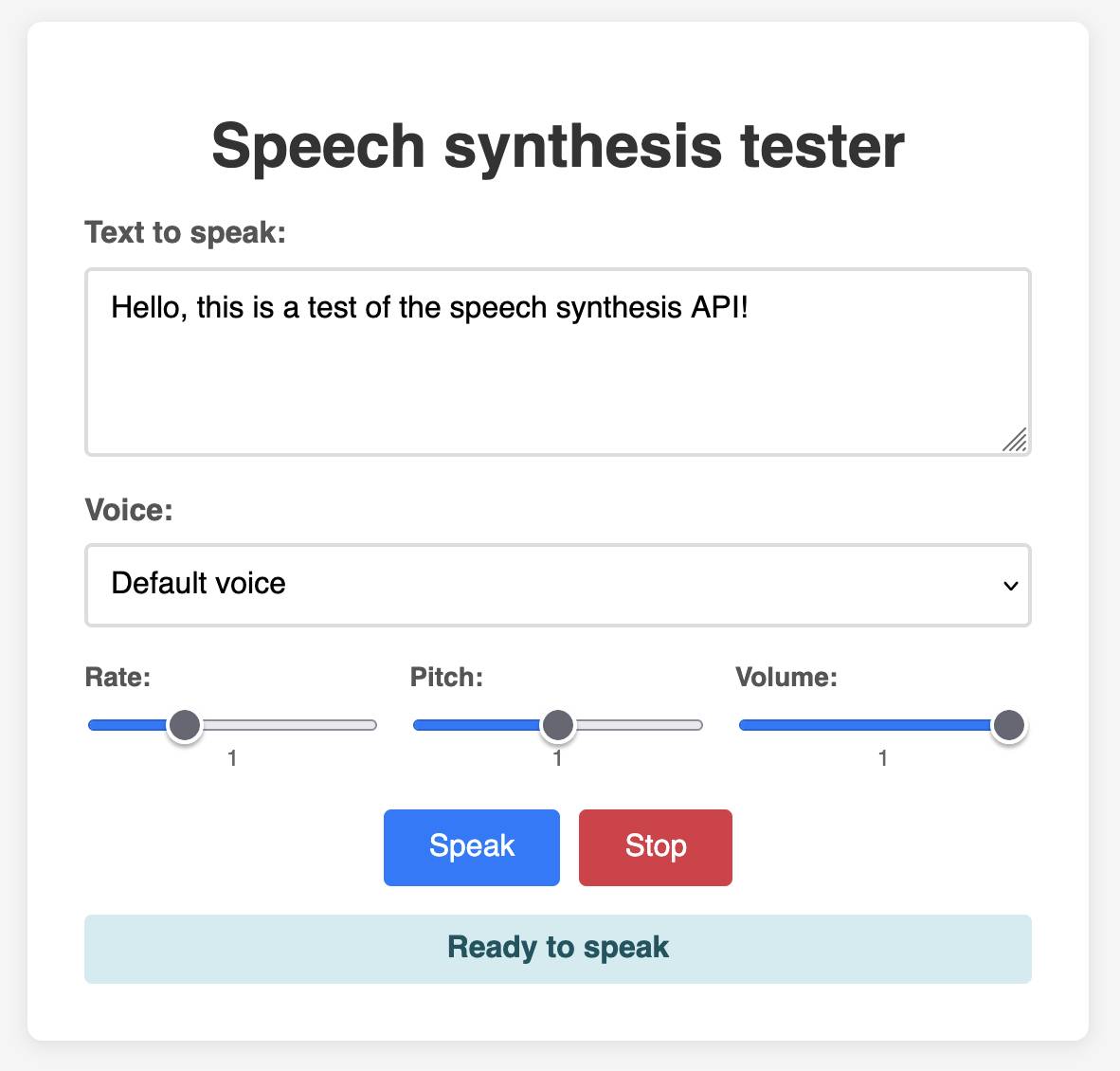
Announcing Toad—a universal UI for agentic coding in the terminal. Will McGugan is building his own take on a terminal coding assistant, in the style of Claude Code and Gemini CLI, using his Textual Python library as the display layer.
Will makes some confident claims about this being a better approach than the Node UI libraries used in those other tools:
Both Anthropic and Google’s apps flicker due to the way they perform visual updates. These apps update the terminal by removing the previous lines and writing new output (even if only a single line needs to change). This is a surprisingly expensive operation in terminals, and has a high likelihood you will see a partial frame—which will be perceived as flicker. [...]
Toad doesn’t suffer from these issues. There is no flicker, as it can update partial regions of the output as small as a single character. You can also scroll back up and interact with anything that was previously written, including copying un-garbled output — even if it is cropped.
Using Node.js for terminal apps means that users with npx can run them easily without worrying too much about installation - Will points out that uvx has closed the developer experience there for tools written in Python.
Toad will be open source eventually, but is currently in a private preview that's open to companies who sponsor Will's work for $5,000:
[...] you can gain access to Toad by sponsoring me on GitHub sponsors. I anticipate Toad being used by various commercial organizations where $5K a month wouldn't be a big ask. So consider this a buy-in to influence the project for communal benefit at this early stage.
With a bit of luck, this sabbatical needn't eat in to my retirement fund too much. If it goes well, it may even become my full-time gig.
I really hope this works! It would be great to see this kind of model proven as a new way to financially support experimental open source projects of this nature.
I wrote about Textual's streaming markdown implementation the other day, and this post goes into a whole lot more detail about optimizations Will has discovered for making that work better.
The key optimization is to only re-render the last displayed block of the Markdown document, which might be a paragraph or a heading or a table or list, avoiding having to re-render the entire thing any time a token is added to it... with one important catch:
It turns out that the very last block can change its type when you add new content. Consider a table where the first tokens add the headers to the table. The parser considers that text to be a simple paragraph block up until the entire row has arrived, and then all-of-a-sudden the paragraph becomes a table.
TimeScope: How Long Can Your Video Large Multimodal Model Go? (via) New open source benchmark for evaluating vision LLMs on how well they handle long videos:
TimeScope probes the limits of long-video capabilities by inserting several short (~5-10 second) video clips---our "needles"---into base videos ranging from 1 minute to 8 hours. With three distinct task types, it evaluates not just retrieval but synthesis, localization, and fine-grained motion analysis, providing a more holistic view of temporal comprehension.
Videos can be fed into image-accepting models by converting them into thousands of images of frames (a trick I've tried myself), so they were able to run the benchmark against models that included GPT 4.1, Qwen2.5-VL-7B and Llama-3.2 11B in addition to video supporting models like Gemini 2.5 Pro.
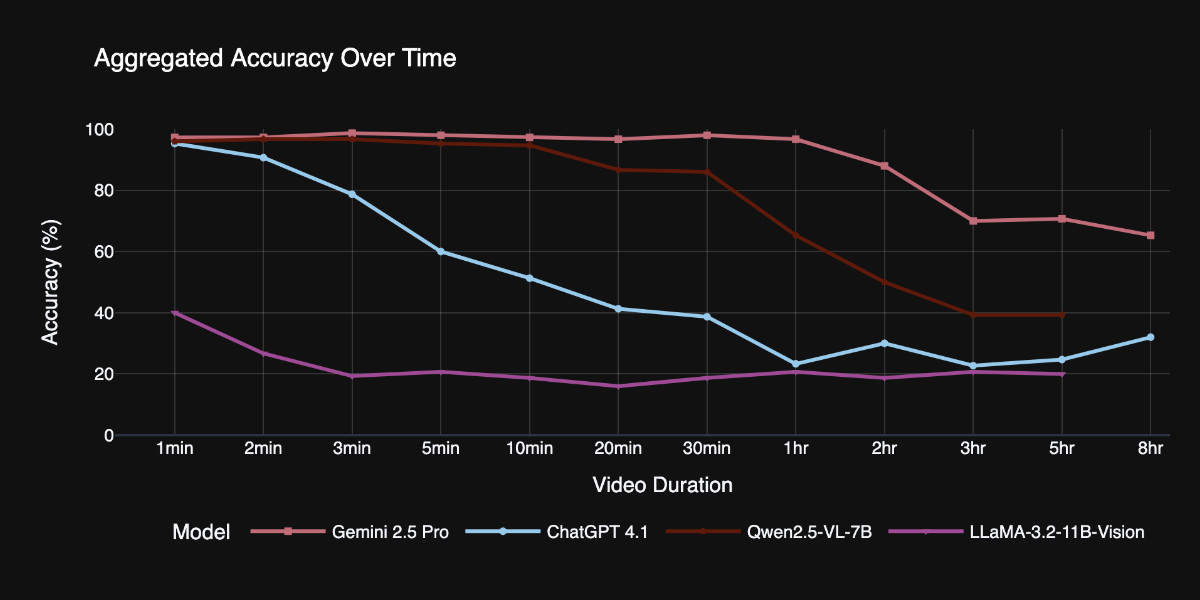
Two discoveries from the benchmark that stood out to me:
Model size isn't everything. Qwen 2.5-VL 3B and 7B, as well as InternVL 2.5 models at 2B, 4B, and 8B parameters, exhibit nearly indistinguishable long-video curves to their smaller counterparts. All of them plateau at roughly the same context length, showing that simply scaling parameters does not automatically grant a longer temporal horizon.
Gemini 2.5-Pro is in a league of its own. It is the only model that maintains strong accuracy on videos longer than one hour.
You can explore the benchmark dataset on Hugging Face, which includes prompts like this one:
Answer the question based on the given video. Only give me the answer and do not output any other words.
Question: What does the golden retriever do after getting out of the box?A: lies on the ground B: kisses the man C: eats the food D: follows the baby E: plays with the ball F: gets back into the box
Introducing OSS Rebuild: Open Source, Rebuilt to Last (via) Major news on the Reproducible Builds front: the Google Security team have announced OSS Rebuild, their project to provide build attestations for open source packages released through the NPM, PyPI and Crates ecosystom (and more to come).
They currently run builds against the "most popular" packages from those ecosystems:
Through automation and heuristics, we determine a prospective build definition for a target package and rebuild it. We semantically compare the result with the existing upstream artifact, normalizing each one to remove instabilities that cause bit-for-bit comparisons to fail (e.g. archive compression). Once we reproduce the package, we publish the build definition and outcome via SLSA Provenance. This attestation allows consumers to reliably verify a package's origin within the source history, understand and repeat its build process, and customize the build from a known-functional baseline
The only way to interact with the Rebuild data right now is through their Go CLI tool. I reverse-engineered it using Gemini 2.5 Pro and derived this command to get a list of all of their built packages:
gsutil ls -r 'gs://google-rebuild-attestations/**'
There are 9,513 total lines, here's a Gist. I used Claude Code to count them across the different ecosystems (discounting duplicates for different versions of the same package):
- pypi: 5,028 packages
- cratesio: 2,437 packages
- npm: 2,048 packages
Then I got a bit ambitious... since the files themselves are hosted in a Google Cloud Bucket, could I run my own web app somewhere on storage.googleapis.com that could use fetch() to retrieve that data, working around the lack of open CORS headers?
I got Claude Code to try that for me (I didn't want to have to figure out how to create a bucket and configure it for web access just for this one experiment) and it built and then deployed https://storage.googleapis.com/rebuild-ui/index.html, which did indeed work!
![Screenshot of Google Rebuild Explorer interface showing a search box with placeholder text "Type to search packages (e.g., 'adler', 'python-slugify')..." under "Search rebuild attestations:", a loading file path "pypi/accelerate/0.21.0/accelerate-0.21.0-py3-none-any.whl/rebuild.intoto.jsonl", and Object 1 containing JSON with "payloadType": "in-toto.io Statement v1 URL", "payload": "...", "signatures": [{"keyid": "Google Cloud KMS signing key URL", "sig": "..."}]](https://static.simonwillison.net/static/2025/rebuild-ui.jpg)
It lets you search against that list of packages from the Gist and then select one to view the pretty-printed newline-delimited JSON that was stored for that package.
The output isn't as interesting as I was expecting, but it was fun demonstrating that it's possible to build and deploy web apps to Google Cloud that can then make fetch() requests to other public buckets.
Hopefully the OSS Rebuild team will add a web UI to their project at some point in the future.
Instagram Reel: Veo 3 paid preview. @googlefordevs on Instagram published this reel featuring Christina Warren with prompting tips for the new Veo 3 paid preview (mp4 copy here).

(Christine checked first if I minded them using that concept. I did not!)
July 24, 2025
I Drank Every Cocktail (via) Adam Aaronson drank his way through all 102 cocktails on the IBA cocktails list - published by the International Bartenders Association since 1961, with the most recent update in 2024.
Adam's write up is delightful, incorporating pedantry, data nerdery, a trip to the Internet Archive, some excellent bar recommendations in New York and London and hints at elicit rum smuggling to help make the final cocktail, the IBA Tiki, using two different Havana Club rums that are illegal in the USA thanks to import restrictions.
[...] You learn best and most effectively when you are learning something that you care about. Your work becomes meaningful and something you can be proud of only when you have chosen it for yourself. This is why our second self-directive is to build your volitional muscles. Your volition is your ability to make decisions and act on them. To set your own goals, choose your own path, and decide what matters to you. Like physical muscles, you build your volitional muscles by exercising them, and in doing so you can increase your sense of what’s possible.
LLMs are good at giving fast answers. They’re not good at knowing what questions you care about, or which answers are meaningful. Only you can do that. You should use AI-powered tools to complement or increase your agency, not replace it.
— Recurse Center, Developing our position on AI
Using GitHub Spark to reverse engineer GitHub Spark
GitHub Spark was released in public preview yesterday. It’s GitHub’s implementation of the prompt-to-app pattern also seen in products like Claude Artifacts, Lovable, Vercel v0, Val Town Townie and Fly.io’s Phoenix New. In this post I reverse engineer Spark and explore its fascinating system prompt in detail.
[... 3,900 words]July 25, 2025
Qwen3-235B-A22B-Thinking-2507 (via) The third Qwen model release week, following Qwen3-235B-A22B-Instruct-2507 on Monday 21st and Qwen3-Coder-480B-A35B-Instruct on Tuesday 22nd.
Those two were both non-reasoning models - a change from the previous models in the Qwen 3 family which combined reasoning and non-reasoning in the same model, controlled by /think and /no_think tokens.
Today's model, Qwen3-235B-A22B-Thinking-2507 (also released as an FP8 variant), is their new thinking variant.
Qwen claim "state-of-the-art results among open-source thinking models" and have increased the context length to 262,144 tokens - a big jump from April's Qwen3-235B-A22B which was "32,768 natively and 131,072 tokens with YaRN".
Their own published benchmarks show comparable scores to DeepSeek-R1-0528, OpenAI's o3 and o4-mini, Gemini 2.5 Pro and Claude Opus 4 in thinking mode.
The new model is already available via OpenRouter.
But how good is its pelican?
I tried it with "Generate an SVG of a pelican riding a bicycle" via OpenRouter, and it thought for 166 seconds - nearly three minutes! I have never seen a model think for that long. No wonder the documentation includes the following:
However, since the model may require longer token sequences for reasoning, we strongly recommend using a context length greater than 131,072 when possible.
Here's a copy of that thinking trace. It was really fun to scan through:
![Qwen3 235B A22B Thinking 2507 Seat at (200,200). The pelican's body will be: - The main body: a rounded shape starting at (200,200) and going to about (250, 250) [but note: the pelican is sitting, so the body might be more upright?] - Head: at (200, 180) [above the seat] and the beak extending forward to (280, 180) or so. We'll design the pelican as: - Head: a circle at (180, 170) with radius 15. - Beak: a long triangle from (180,170) to (250,170) and then down to (250,180) and back? Actually, the beak is a long flat-bottomed triangle.](https://static.simonwillison.net/static/2025/qwen-details.jpg)
The finished pelican? Not so great! I like the beak though:
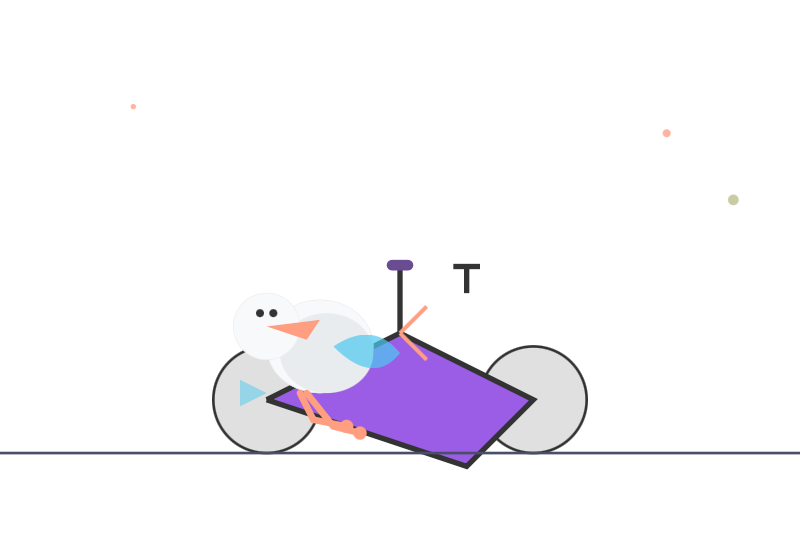
July 26, 2025
Official statement from Tea on their data leak. Tea is a dating safety app for women that lets them share notes about potential dates. The other day it was subject to a truly egregious data leak caused by a legacy unprotected Firebase cloud storage bucket:
A legacy data storage system was compromised, resulting in unauthorized access to a dataset from prior to February 2024. This dataset includes approximately 72,000 images, including approximately 13,000 selfies and photo identification submitted by users during account verification and approximately 59,000 images publicly viewable in the app from posts, comments and direct messages.
Storing and then failing to secure photos of driving licenses is an incredible breach of trust. Many of those photos included EXIF location information too, so there are maps of Tea users floating around the darker corners of the web now.
I've seen a bunch of commentary using this incident as an example of the dangers of vibe coding. I'm confident vibe coding was not to blame in this particular case, even while I share the larger concern of irresponsible vibe coding leading to more incidents of this nature.
The announcement from Tea makes it clear that the underlying issue relates to code written prior to February 2024, long before vibe coding was close to viable for building systems of this nature:
During our early stages of development some legacy content was not migrated into our new fortified system. Hackers broke into our identifier link where data was stored before February 24, 2024. As we grew our community, we migrated to a more robust and secure solution which has rendered that any new users from February 2024 until now were not part of the cybersecurity incident.
Also worth noting is that they stopped requesting photos of ID back in 2023:
During our early stages of development, we required selfies and IDs as an added layer of safety to ensure that only women were signing up for the app. In 2023, we removed the ID requirement.
Update 28th July: A second breach has been confirmed by 404 Media, this time exposing more than one million direct messages dated up to this week.
July 27, 2025
Enough AI copilots! We need AI HUDs. Geoffrey Litt compares Copilots - AI assistants that you engage in dialog with and work with you to complete a task - with HUDs, Head-Up Displays, which enhance your working environment in less intrusive ways.
He uses spellcheck as an obvious example, providing underlines for incorrectly spelt words, and then suggests his AI-implemented custom debugging UI as a more ambitious implementation of that pattern.
Plenty of people have expressed interest in LLM-backed interfaces that go beyond chat or editor autocomplete. I think HUDs offer a really interesting way to frame one approach to that design challenge.
TIL: Exception.add_note
(via)
Neat tip from Danny Roy Greenfeld: Python 3.11 added a .add_note(message: str) method to the BaseException class, which means you can add one or more extra notes to any Python exception and they'll be displayed in the stacktrace!
Here's PEP 678 – Enriching Exceptions with Notes by Zac Hatfield-Dodds proposing the new feature back in 2021.
The many, many, many JavaScript runtimes of the last decade (via) Extraordinary piece of writing by Jamie Birch who spent over a year putting together this comprehensive reference to JavaScript runtimes. It covers everything from Node.js, Deno, Electron, AWS Lambda, Cloudflare Workers and Bun all the way to much smaller projects idea like dukluv and txiki.js.
July 28, 2025
GLM-4.5: Reasoning, Coding, and Agentic Abililties. Another day, another significant new open weight model release from a Chinese frontier AI lab.
This time it's Z.ai - who rebranded (at least in English) from Zhipu AI a few months ago. They just dropped GLM-4.5-Base, GLM-4.5 and GLM-4.5 Air on Hugging Face, all under an MIT license.
These are MoE hybrid reasoning models with thinking and non-thinking modes, similar to Qwen 3. GLM-4.5 is 355 billion total parameters with 32 billion active, GLM-4.5-Air is 106 billion total parameters and 12 billion active.
They started using MIT a few months ago for their GLM-4-0414 models - their older releases used a janky non-open-source custom license.
Z.ai's own benchmarking (across 12 common benchmarks) ranked their GLM-4.5 3rd behind o3 and Grok-4 and just ahead of Claude Opus 4. They ranked GLM-4.5 Air 6th place just ahead of Claude 4 Sonnet. I haven't seen any independent benchmarks yet.
The other models they included in their own benchmarks were o4-mini (high), Gemini 2.5 Pro, Qwen3-235B-Thinking-2507, DeepSeek-R1-0528, Kimi K2, GPT-4.1, DeepSeek-V3-0324. Notably absent: any of Meta's Llama models, or any of Mistral's. Did they deliberately only compare themselves to open weight models from other Chinese AI labs?
Both models have a 128,000 context length and are trained for tool calling, which honestly feels like table stakes for any model released in 2025 at this point.
It's interesting to see them use Claude Code to run their own coding benchmarks:
To assess GLM-4.5's agentic coding capabilities, we utilized Claude Code to evaluate performance against Claude-4-Sonnet, Kimi K2, and Qwen3-Coder across 52 coding tasks spanning frontend development, tool development, data analysis, testing, and algorithm implementation. [...] The empirical results demonstrate that GLM-4.5 achieves a 53.9% win rate against Kimi K2 and exhibits dominant performance over Qwen3-Coder with an 80.8% success rate. While GLM-4.5 shows competitive performance, further optimization opportunities remain when compared to Claude-4-Sonnet.
They published the dataset for that benchmark as zai-org/CC-Bench-trajectories on Hugging Face. I think they're using the word "trajectory" for what I would call a chat transcript.
Unlike DeepSeek-V3 and Kimi K2, we reduce the width (hidden dimension and number of routed experts) of the model while increasing the height (number of layers), as we found that deeper models exhibit better reasoning capacity.
They pre-trained on 15 trillion tokens, then an additional 7 trillion for code and reasoning:
Our base model undergoes several training stages. During pre-training, the model is first trained on 15T tokens of a general pre-training corpus, followed by 7T tokens of a code & reasoning corpus. After pre-training, we introduce additional stages to further enhance the model's performance on key downstream domains.
They also open sourced their post-training reinforcement learning harness, which they've called slime. That's available at THUDM/slime on GitHub - THUDM is the Knowledge Engineer Group @ Tsinghua University, the University from which Zhipu AI spun out as an independent company.
This time I ran my pelican bechmark using the chat.z.ai chat interface, which offers free access (no account required) to both GLM 4.5 and GLM 4.5 Air. I had reasoning enabled for both.
Here's what I got for "Generate an SVG of a pelican riding a bicycle" on GLM 4.5. I like how the pelican has its wings on the handlebars:

And GLM 4.5 Air:

Ivan Fioravanti shared a video of the mlx-community/GLM-4.5-Air-4bit quantized model running on a M4 Mac with 128GB of RAM, and it looks like a very strong contender for a local model that can write useful code. The cheapest 128GB Mac Studio costs around $3,500 right now, so genuinely great open weight coding models are creeping closer to being affordable on consumer machines.
Update: Ivan released a 3 bit quantized version of GLM-4.5 Air which runs using 48GB of RAM on my laptop. I tried it and was really impressed, see My 2.5 year old laptop can write Space Invaders in JavaScript now.
We’re rolling out new weekly rate limits for Claude Pro and Max in late August. We estimate they’ll apply to less than 5% of subscribers based on current usage. [...]
Some of the biggest Claude Code fans are running it continuously in the background, 24/7.
These uses are remarkable and we want to enable them. But a few outlying cases are very costly to support. For example, one user consumed tens of thousands in model usage on a $200 plan.
July 29, 2025
My 2.5 year old laptop can write Space Invaders in JavaScript now, using GLM-4.5 Air and MLX
I wrote about the new GLM-4.5 model family yesterday—new open weight (MIT licensed) models from Z.ai in China which their benchmarks claim score highly in coding even against models such as Claude Sonnet 4.
[... 685 words]Our plan is to build direct traffic to our site. and newsletters just one kind of direct traffic in the end. I don’t intend to ever rely on someone else’s distribution ever again ;)
— Nilay Patel, on The Verge's new newsletter strategy
Qwen3-30B-A3B-Instruct-2507. New model update from Qwen, improving on their previous Qwen3-30B-A3B release from late April. In their tweet they said:
Smarter, faster, and local deployment-friendly.
✨ Key Enhancements:
✅ Enhanced reasoning, coding, and math skills
✅ Broader multilingual knowledge
✅ Improved long-context understanding (up to 256K tokens)
✅ Better alignment with user intent and open-ended tasks
✅ No more<think>blocks — now operating exclusively in non-thinking mode🔧 With 3B activated parameters, it's approaching the performance of GPT-4o and Qwen3-235B-A22B Non-Thinking
I tried the chat.qwen.ai hosted model with "Generate an SVG of a pelican riding a bicycle" and got this:
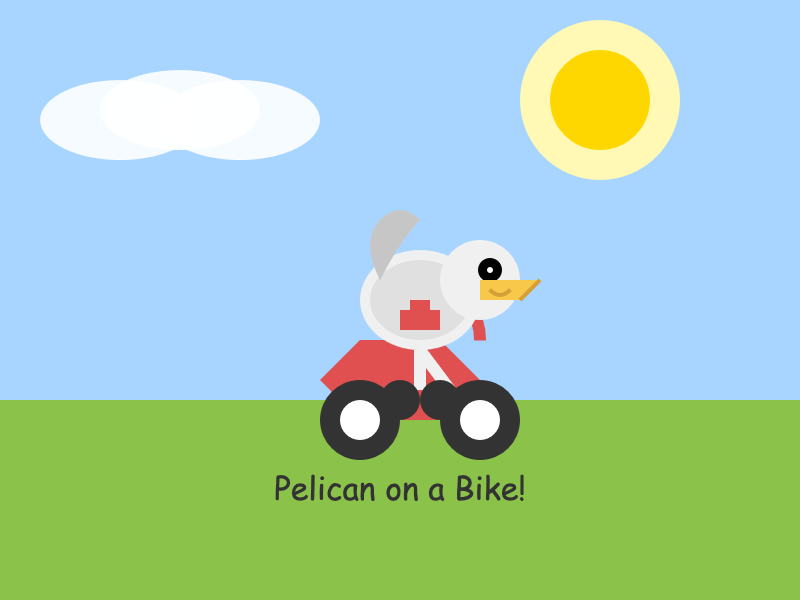
I particularly enjoyed this detail from the SVG source code:
<!-- Bonus: Pelican's smile -->
<path d="M245,145 Q250,150 255,145" fill="none" stroke="#d4a037" stroke-width="2"/>
I went looking for quantized versions that could fit on my Mac and found lmstudio-community/Qwen3-30B-A3B-Instruct-2507-MLX-8bit from LM Studio. Getting that up and running was a 32.46GB download and it appears to use just over 30GB of RAM.
The pelican I got from that one wasn't as good:

I then tried that local model on the "Write an HTML and JavaScript page implementing space invaders" task that I ran against GLM-4.5 Air. The output looked promising, in particular it seemed to be putting more effort into the design of the invaders (GLM-4.5 Air just used rectangles):
// Draw enemy ship ctx.fillStyle = this.color; // Ship body ctx.fillRect(this.x, this.y, this.width, this.height); // Enemy eyes ctx.fillStyle = '#fff'; ctx.fillRect(this.x + 6, this.y + 5, 4, 4); ctx.fillRect(this.x + this.width - 10, this.y + 5, 4, 4); // Enemy antennae ctx.fillStyle = '#f00'; if (this.type === 1) { // Basic enemy ctx.fillRect(this.x + this.width / 2 - 1, this.y - 5, 2, 5); } else if (this.type === 2) { // Fast enemy ctx.fillRect(this.x + this.width / 4 - 1, this.y - 5, 2, 5); ctx.fillRect(this.x + (3 * this.width) / 4 - 1, this.y - 5, 2, 5); } else if (this.type === 3) { // Armored enemy ctx.fillRect(this.x + this.width / 2 - 1, this.y - 8, 2, 8); ctx.fillStyle = '#0f0'; ctx.fillRect(this.x + this.width / 2 - 1, this.y - 6, 2, 3); }
But the resulting code didn't actually work:
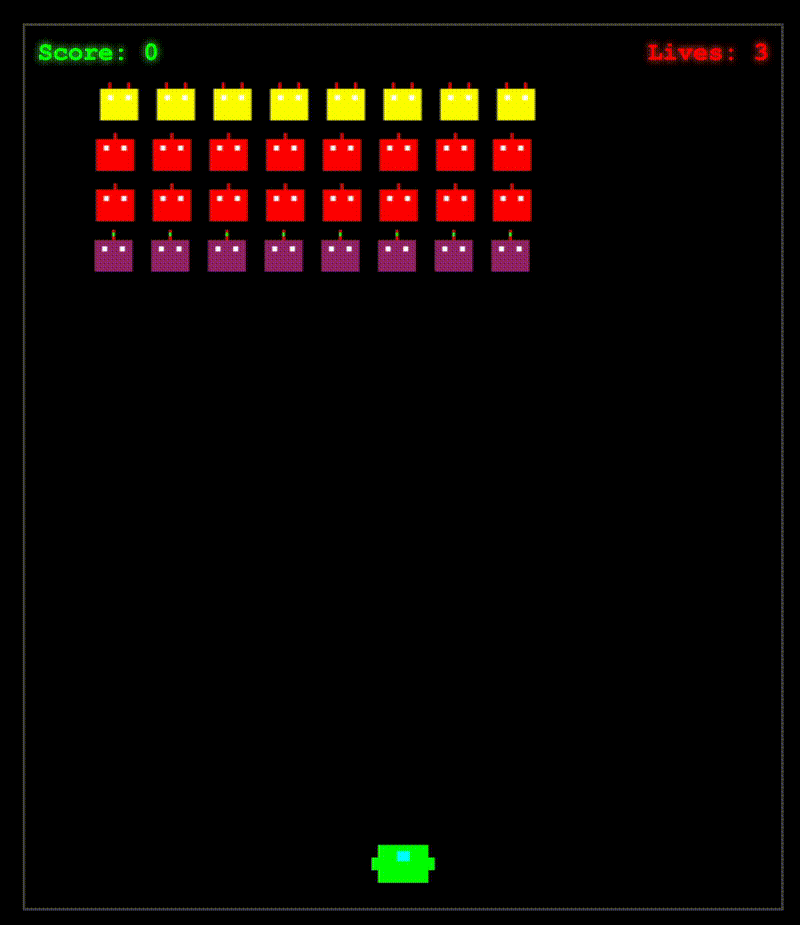
That same prompt against the unquantized Qwen-hosted model produced a different result which sadly also resulted in an unplayable game - this time because everything moved too fast.
This new Qwen model is a non-reasoning model, whereas GLM-4.5 and GLM-4.5 Air are both reasoners. It looks like at this scale the "reasoning" may make a material difference in terms of getting code that works out of the box.
